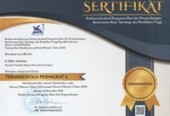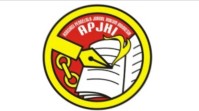The Enforcement of the 2009 Law Number 46 on Corruption Court: The Role of Special Corruption Court
DOI:
https://doi.org/10.28946/slrev.Vol2.Iss2.69.pp193-202Keywords:
Corruption Court, Law Enforcement, CorruptionAbstract
The Corruption Court is an independent special court under the General Court. The objectives of creating the Corruption Court is, inter alia, to adjudicate the corruption cases, to eliminate the interference of other party involves in corruption cases, to keep the Court runs in the right path. Herein, in the concept of rule of law, justice principle, under the ideology of Five Principles of Pancasila may only work well if it accompanied with other principles of social, economic, political, ideological, ethnic, racial, religious, color, and even gender background. Hence, the Judges have dual function both as sanction giver but also to deter other people not commit the same crime. In this connection, the preventive measures, such as counseling and providing legal information, as well as socialization of Corruption Law are perceived to be urgent as a new method for Indonesian in combating the corruption. This study is a normative one but employing empirical- juridical approaches. The normative research was conducted to analyze the theoretical matters of legal principles, while the empirical approach employed in the form of observing the behavior of the suspect of corruption. The findings of the study shows that the Art. 53 of the 2002 Law Number 30 it was in contradiction to The 1945 Constitution for the corruption cases cannot be tried in two different courts. That is the idea of the establishment of the Corruption Court as a special court besides the so-many corruptions committed in Indonesia where the verdict of the District Court is beyond the people’s justiceDownloads
References
REFERENCES
Books
Arief, Barda Nawawi. Pokok-Pokok Pikiran Pembaharuan Undang-Undang Pemberantasan Korupsi. Makalah Seminar di Unsoed. Porwokerto.
Hamzah, Andi (I). 1991. Korupsi di Indoneisia Masalah dan Pemecahannya. Jakarta: Gramedia Pustaka Utama.
Loqman, Loebby. 1991. Beberapa Ichwal di Dalam Undang-undang Nomor 3 Tahun 1971 Tentang Pemberantasan Tindak Pidana Korupsi. Jakarta: Datacom.
Lubis, Mochtar and James C. Scott. 1995. Bunga Rampai Korupsi. Jakarta: LP3ES and Obor.
Nitibaskara, Ronny Rahman. 2007. Tegakkan Hukum Gunakan Hukum. Jakarta: PT. Kompas Media Nusantara.
Rahardjo, Satjipto. 2006. Membedah Hukum Progresif. Jakarta: Kompas.
Ronny Rahman, Nitibaskara. 2007. Tegakkan Hukum Gunakan Hukum, Jakarta: PT. Kompas Media Nusantara.
Rukmini, Mien. 2009. Aspek Hukum Pidana dan Kriminologi (Sebuah Bunga Rampai. Bandung: Alumni.
Soekanto, SoerjoNumber 1979. Sosiologi Hukum Dalam Masyarakat. Jakarta: Raja-wali.
Styawati, Deni. 2008. CEC KPK Pemburu Koruptor. Cet. I. Yogyakarta: Pustaka Timur.
Tanya, Bernard L., Yoan N. Simanjuntak, and Mark Y. Hage. 2010. Teori Hukum Strategi Tertib Manusia Lintas Ruang dan Generasi. Yogyakarta: Genta Publishing.
Zainuri, Achmad. 2007. Akar Kultural Korupsi di Indonesia. Depok: Cahaya Baru Sawangan.
Journals
Nurhidayatuloh, N., Febrian, F., Romsan, A., Yahanan, A., Sardi, M., & Zuhro, F. (2018). FORSAKING EQUALITY: EXAMINE INDONESIA’S STATE RESPONSIBILITY ON POLYGAMY TO THE MARRIAGE RIGHTS IN CEDAW. Jurnal Dinamika Hukum, 18(2), 182-193.
Nurhidayatuloh, N. Dilema Pengujian Undang-Undang Ratifikasi Oleh Mahkamah Konstitusi Dalam Konteks Ketetanegaraan RI. Jurnal Konstitusi, 9(1).
Rifai, Eddy. 2017. “An Analysis of the Death Penalty in Indonesia Criminal Law.†Sriwijaya Law Review. 1 (2).
Santiago, Faisal. 2014. Corruption Crime Strategy, Sociological Legal Review. Lex Publica Journal. FPPTHI. Jakarta. 1. Pp57.
Sahetapi, JE, Globalization and Crime, Seminar Criminology Ke VI, Semarang, 9-2 December 1994.
Smith, Theodore M. 1971. Corruption, Tradition, and Change. Indonesia. 11.
World Wide Web
www.suduthukum.com. [retrieved: July 10, 2017].
ICW Study Results on free verdicts against corruption defendants in the General Courts, www.antikorupsi.org. [retrieved: July 10, 2017].
Law and Decrees
The Decree of the Constitutional Court Number 012-016-019/PUU-IV/2006.
The Government Regulation Number 1 of 1998 concerning the Commercial Court.
The Law Number 30 of 2002 on the Corruption Eradication Commission. Government Regulation in Lieu of Law Number 7 of 1955.
The Law Number 3 of 1997 concerning the Juvenile Court.
The Law Number 14 of 2000 concerning Tax Court.
The Law Number 8 of 2010 on Money Laundering.
The Law Number 11 of 2012 on the Crimi-nal Justice System of the Child.
The Law Number 48 of 2009 on Judicial Power.
The Law Number 30 of 2002 on the Corruption Eradication Commission.
The Law Number 26 of 2000 concerning the Human Rights Court.
The Law Number 46 of 2009 concerning the Corruption Court.
The Law Number 2 of 2004 concerning the Industrial Relations Dispute Settlement Body.
The Law Number 31 of 2004 concering the Fishery Court.
Downloads
Additional Files
- The Role of Special Corruption Court toward the Law Enforcement for Corruptors (Analysis of Law no. 46 of 2009 on the Corruption Court)
- The Role of Special Corruption Court toward the Law Enforcement for Corruptors (Analysis of Law no. 46 of 2009 on the Corruption Court)
- Peran Pengadilan Khusus Tindak Pidana Korupsi terhadap Penegakan Hukum bagi Pelaku Korupsi
- Peran Pengadilan Khusus Tindak Pidana Korupsi terhadap Penegakan Hukum bagi Pelaku Korupsi (Analisis UU No. 46/2009 tentang Pengadilan Tindak Pidana Korupsi)
- The Role of Special Corruption Court toward the Law Enforcement for Corruptors (Analysis of Law no. 46 of 2009 on the Corruption Court)
- The Role of Special Corruption Court toward the Law Enforcement for Corruptors (Analysis of Law no. 46 of 2009 on the Corruption Court)
















